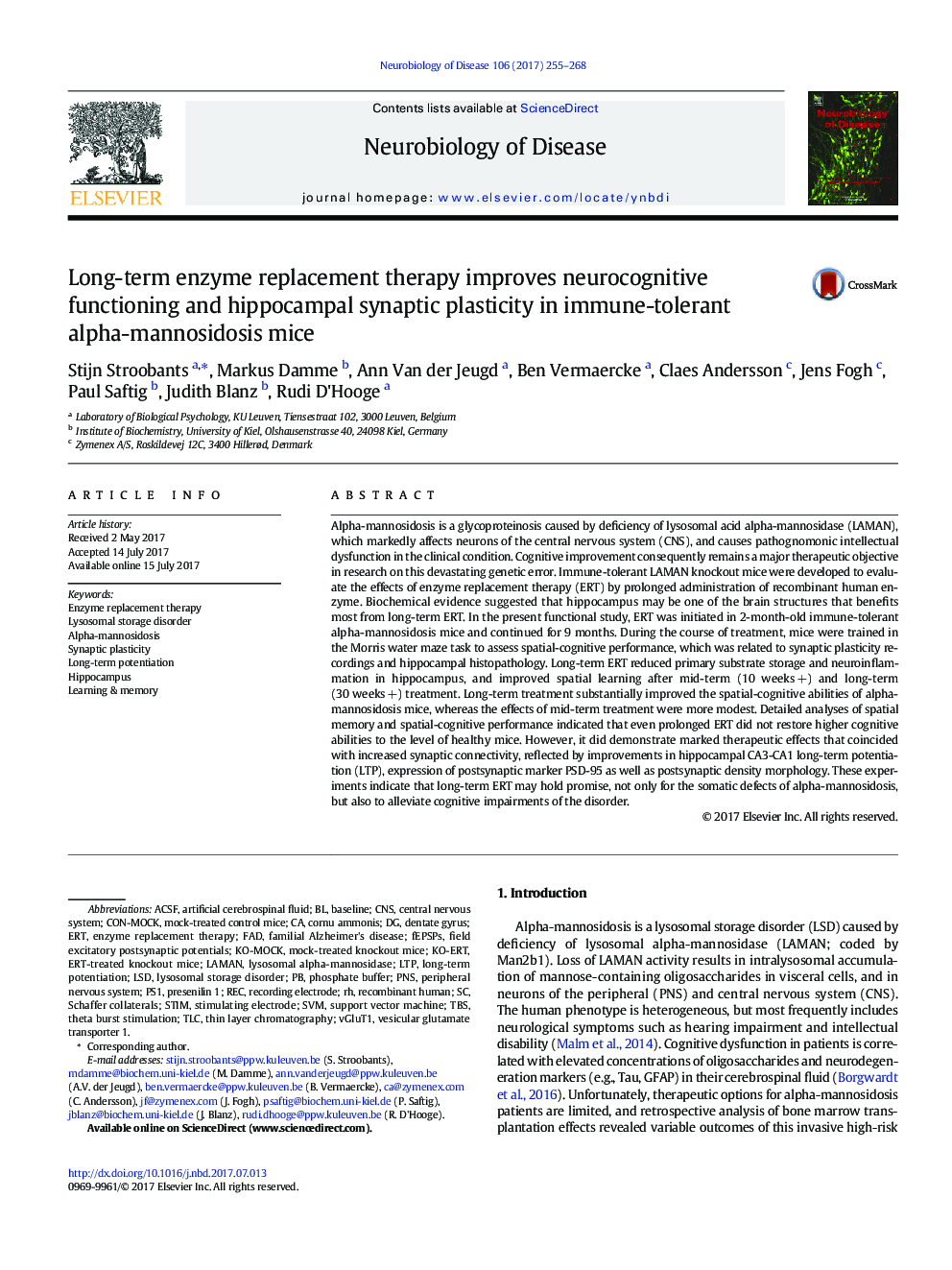| کد مقاله | کد نشریه | سال انتشار | مقاله انگلیسی | نسخه تمام متن |
|---|---|---|---|---|
| 5630602 | 1580615 | 2017 | 14 صفحه PDF | دانلود رایگان |
- Long-term ERT reduces substrate storage in brains of alpha-mannosidosis mice.
- Long-term ERT reduces hippocampal neuroinflammation and increases PSD-95 expression.
- Long-term ERT partially corrects hippocampal synaptic morphology.
- Long-term ERT improves hippocampal long-term potentiation.
- Long-term ERT benefits spatial learning but shows no effect on retention memory.
Alpha-mannosidosis is a glycoproteinosis caused by deficiency of lysosomal acid alpha-mannosidase (LAMAN), which markedly affects neurons of the central nervous system (CNS), and causes pathognomonic intellectual dysfunction in the clinical condition. Cognitive improvement consequently remains a major therapeutic objective in research on this devastating genetic error. Immune-tolerant LAMAN knockout mice were developed to evaluate the effects of enzyme replacement therapy (ERT) by prolonged administration of recombinant human enzyme. Biochemical evidence suggested that hippocampus may be one of the brain structures that benefits most from long-term ERT. In the present functional study, ERT was initiated in 2-month-old immune-tolerant alpha-mannosidosis mice and continued for 9 months. During the course of treatment, mice were trained in the Morris water maze task to assess spatial-cognitive performance, which was related to synaptic plasticity recordings and hippocampal histopathology. Long-term ERT reduced primary substrate storage and neuroinflammation in hippocampus, and improved spatial learning after mid-term (10 weeks +) and long-term (30 weeks +) treatment. Long-term treatment substantially improved the spatial-cognitive abilities of alpha-mannosidosis mice, whereas the effects of mid-term treatment were more modest. Detailed analyses of spatial memory and spatial-cognitive performance indicated that even prolonged ERT did not restore higher cognitive abilities to the level of healthy mice. However, it did demonstrate marked therapeutic effects that coincided with increased synaptic connectivity, reflected by improvements in hippocampal CA3-CA1 long-term potentiation (LTP), expression of postsynaptic marker PSD-95 as well as postsynaptic density morphology. These experiments indicate that long-term ERT may hold promise, not only for the somatic defects of alpha-mannosidosis, but also to alleviate cognitive impairments of the disorder.
Journal: Neurobiology of Disease - Volume 106, October 2017, Pages 255-268
